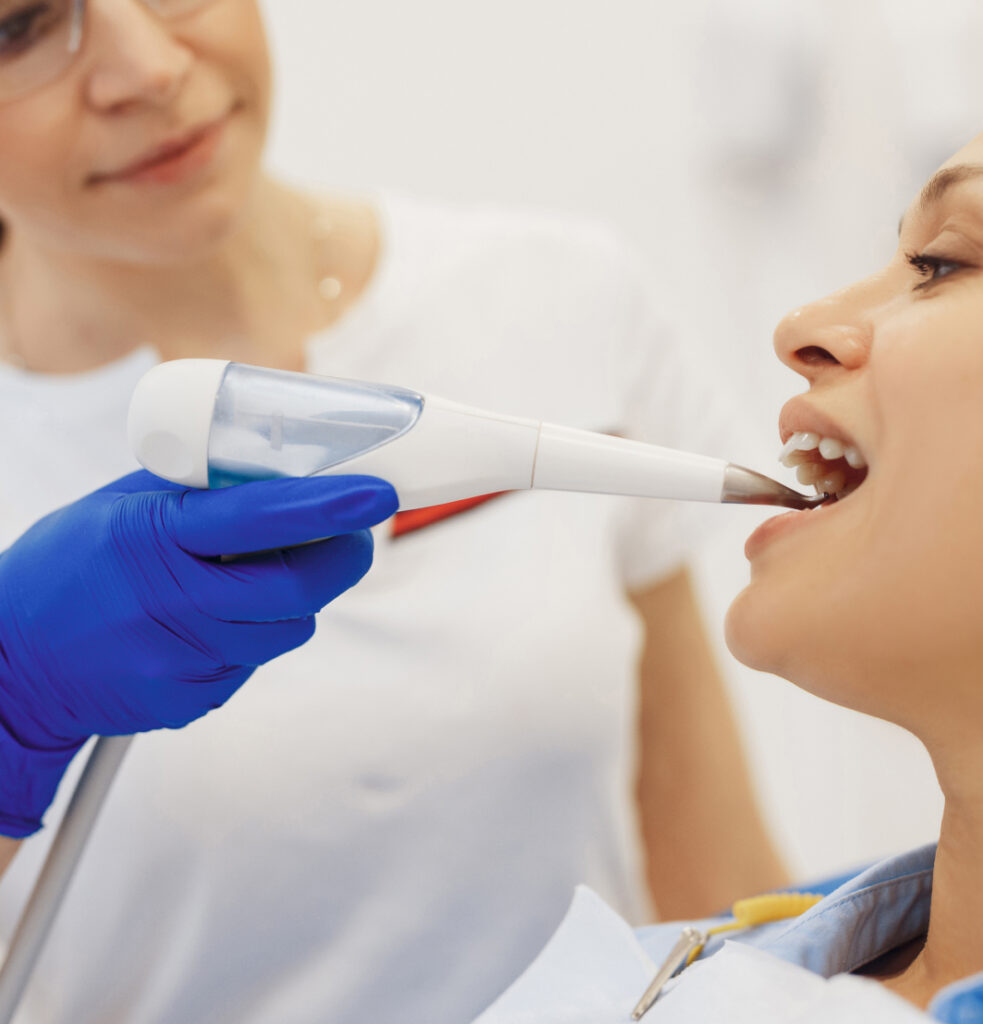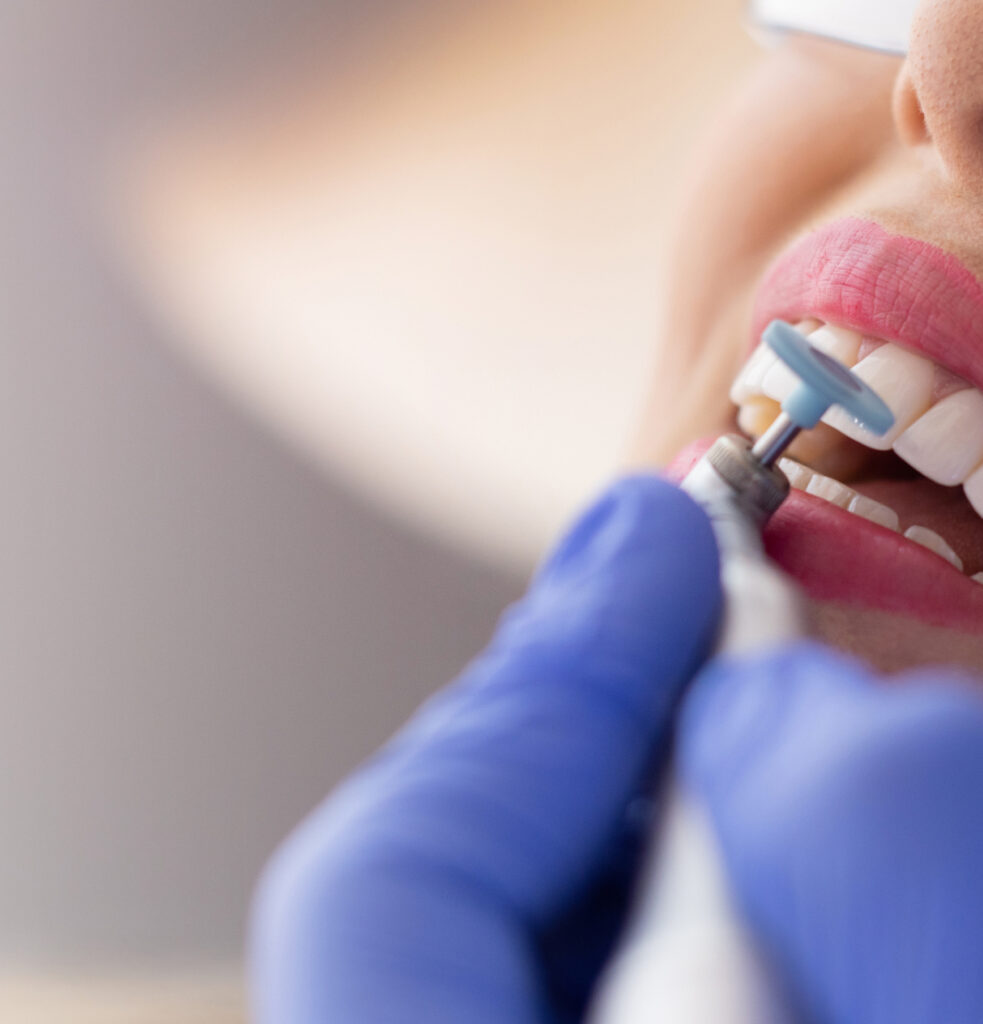Descaling and polishing
Oral hygiene is essential for maintaining healthy teeth and gums. Scaling and polishing are two essential treatments that help keep teeth healthy and clean. Regular appointments and scaling with your dental hygienist at Smile Clinique will help keep your smile healthy for as long as possible.

Scaling: An essential treatment for your gums
Dental scaling is a treatment that aims to remove tartar that can form on the teeth and under the gums. During scaling, tartar deposits are removed by your hygienist either manually (using curettes) or using specific ultrasonic devices (Swiss Airflow EMS devices). This treatment is generally painless, and the hygienists at Smile Clinique adapt the treatment to your sensitivity.
Scaling is an essential treatment that helps prevent serious oral complications. The presence of tartar can cause inflammation of the gums, also known as “gingivitis.” Without treatment, gingivitis can gradually develop into a more serious condition: periodontitis. Periodontitis causes a gradual deterioration of the tooth’s supporting structures, such as ligaments and bone. Regular scaling, once or twice a year, allows your hygienist to perform regular assessments of your oral health.

Polishing: The final step in your descaling
Usually performed after scaling, dental polishing aims to “smooth” the surface of your teeth and thus perfect their cleaning. This step helps remove stains that form due to certain foods, certain drinks (coffee, tea for example) or tobacco. Polishing does not alter the natural color of your teeth and fades certain small imperfections following scaling. An essential step in your treatment, polishing prevents the rapid return of dental plaque and thus gives an extra sparkle to your smile.
When should you perform a descaling?
It’s recommended to have your teeth cleaned at least once a year, even if you don’t have any noticeable symptoms, as this treatment helps prevent tartar buildup and other oral health problems. Depending on your oral health, your dental hygienist may suggest more regular cleanings. If you wear braces or have health conditions (e.g., diabetes, heart problems, etc.), two to three annual cleanings may be necessary.
If you experience gum pain after brushing, or if you notice that your gums are red, swollen, or bleed during or after brushing, it’s important to see a dentist promptly. Regular cleaning can treat these conditions before they become more serious.
